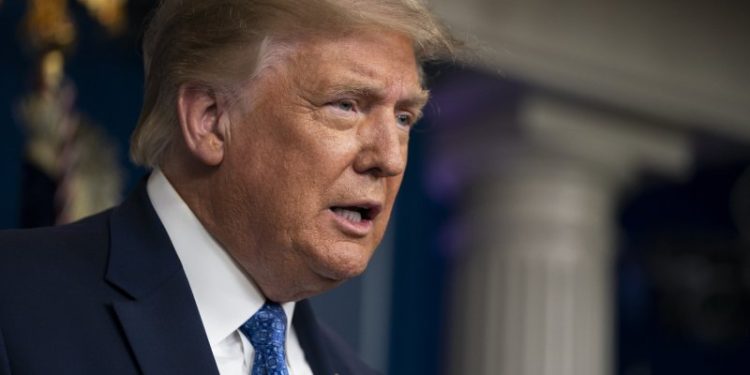The New York Times published an opinion piece urging the dismissal of all criminal cases against Donald Trump following his victory in this month’s presidential election.
Thomas Goldstein, a former appellate attorney, publisher of the SCOTUS blog, and lecturer at Harvard Law School, authored the Nov. 15 op-ed titled “End the Criminal Cases Against Trump.”
“With the election now over, the courts have to decide quickly whether to move forward with the criminal cases against Donald Trump. Although this idea will pain my fellow Democrats, all of the cases should be abandoned,” Goldstein wrote.
Goldstein, who represented former Vice President Al Gore in the 2000 Supreme Court case Bush v. Gore, pointed out that Trump made the criminal prosecutions a central issue in his campaign, and the voters have spoken.
The Republican won the Electoral College vote 312 to 226 and the popular vote by approximately 76.8 million to Vice President Kamala Harris’ 74.3 million.
Goldstein noted that Trump still technically faces four criminal cases: two federal and two state.
The Department of Justice has indicated that special counsel Jack Smith will not be moving forward with the 2020 election interference or classified documents cases. If these cases are not fully resolved by the end of the current administration, they will almost certainly be dropped under the incoming one.
On Friday, New York Judge Juan Merchan removed the sentencing hearing from the court calendar in Trump’s business records case, brought by Manhattan District Attorney Alvin Bragg. The judge is also allowing Trump’s legal team to file a motion to dismiss the case.
Meanwhile, the Fulton County, Georgia, election interference case led by District Attorney Fani Willis is currently before the state Court of Appeals. However, the court issued an order on Nov. 18 postponing oral arguments indefinitely, according to Newsweek.
Regarding the New York and Georgia cases, Goldstein argued, “[T]he prosecutors’ legal theories were and are unusual, to say the least. Their premise is that financial shenanigans and political strong-arming in hard-fought battles for the presidency are serious felonies that can be pursued by local prosecutors in local courts. But these are fundamentally federal, not state, concerns.”
He added, “That doesn’t prove that they were brought for political reasons. But the Constitution trusts the judgment of the American people to decide whether the cases against Mr. Trump, as he has argued, were political and calculated to stop him from being elected.”
Goldstein addressed concerns from Democrats, writing, “For many Democrats, dismissing the cases feels profoundly wrong because they see them as the last chance to bring Mr. Trump to justice. In truth, support for the cases among many Democrats doesn’t seem to be based on confidence in the prosecutors’ legal theories and evidence. Instead, it seems to be driven by politics and hatred of Mr. Trump. That reinforces why they must be dismissed.”
He urged Democrats to consider the precedent these cases could set. “Imagine a world in which Republican state and local prosecutors went after Democratic presidential candidates,” Goldstein warned. “That is what will happen if the current litigation efforts are allowed to stand.”
Goldstein concluded, “[T]he Constitution isn’t concerned with preserving a couple of criminal cases. It is concerned with having a system of government that can hold our democracy together for centuries.”
Though the New York Times is far from an ally of Trump, the publication ran the op-ed, arguing that for the sake of the country, the criminal cases against the president-elect should be dismissed.
 Telegram is where we really talk. Don't miss out!
Telegram is where we really talk. Don't miss out!






